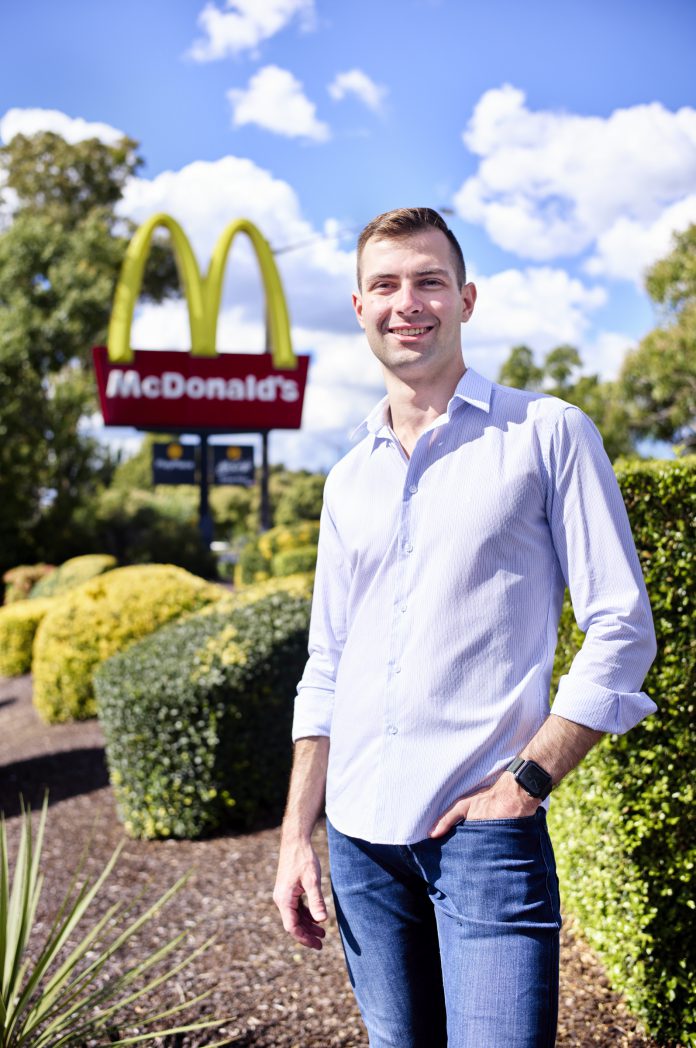
For some people, their first job as a teenager is no more than a chance to earn some spending money and gain independence. For others, like Daniel Antonjuk, it was a stepping stone to an accelerated corporate career that shows no signs of slowing.
The moment Antonjuk was old enough to work, he applied for a job at his local McDonald’s. He got it, and now thirteen years on he is still as interested in the business as the day he started. Only now, Antonjuk is working out of Australia’s head office in a strategic-sourcing role looking after the McDonald’s food supply chain for Australia and New Zealand.
“As soon as I started, I was hooked. There are still many of us here that have never worked anywhere else. We use the expression, ‘we’ve got ketchup in the veins’,” Antonjuk says. “My current role is as a sourcing consultant in the food supply chain, and it’s fascinating because there are always competing priorities, such as cost pressures and demand for equipment and supplies, which is a driving force for me.”
Antonjuk says that his early days on the grill and French fries station have stood him in good stead for the evolving nature of his tenure at McDonald’s. “I have learnt about prioritising and team work throughout my career – and it means we can deal with any challenges we face.”
As he rapidly graduated to crew trainer and then a managerial role by 18, Antonjuk also started a Bachelor of Business degree at university, juggling business theory with practical application. “The advantages of a business degree are quite broad – so having the opportunity to both study and learn firsthand about different roles across the business has been beneficial. I really wanted to know how the IT department works, how operations works, how the legal and finance teams work together, and I was given that chance,” he says.
His thirst for learning landed him in a role sourcing global and local equipment suppliers for the Australian and New Zealand market, where he honed his supply-management skills for four years. “That role included testing and approving new equipment, which taught me how to work through any issues or feedback we might receive. It was also a lesson in how to liaise effectively with other departments and our licensees, which are critical to our business.”
He believes it’s those skills that helped him manage the disruption caused by the pandemic. While localised lockdowns caused factories to shut down, and supply chains were impacted like every other industry, one of the biggest challenges for McDonald’s was being able to manage the sudden demand as countries emerged from lockdown.
“We had a surge in demand from multiple markets to open new restaurants – and we had to justify why we needed equipment and supplies to meet that demand. Our job was to work with both our global teams and the suppliers to make sure that we could get that equipment on time,” he says.
Antonjuk predicts there will be some ongoing pressures for sourcing managers, and being able to meet those challenges will rely on a mixture of process and innovation. “I think we can expect some continued pressure on costs due to inflation, as well as a need to manage timelines and expectations due to delays in the supply chain,” he says. “If COVID taught us one thing, it was that we need to be ready for anything, and that means creative thinking needs to be an integral part of the business.”











